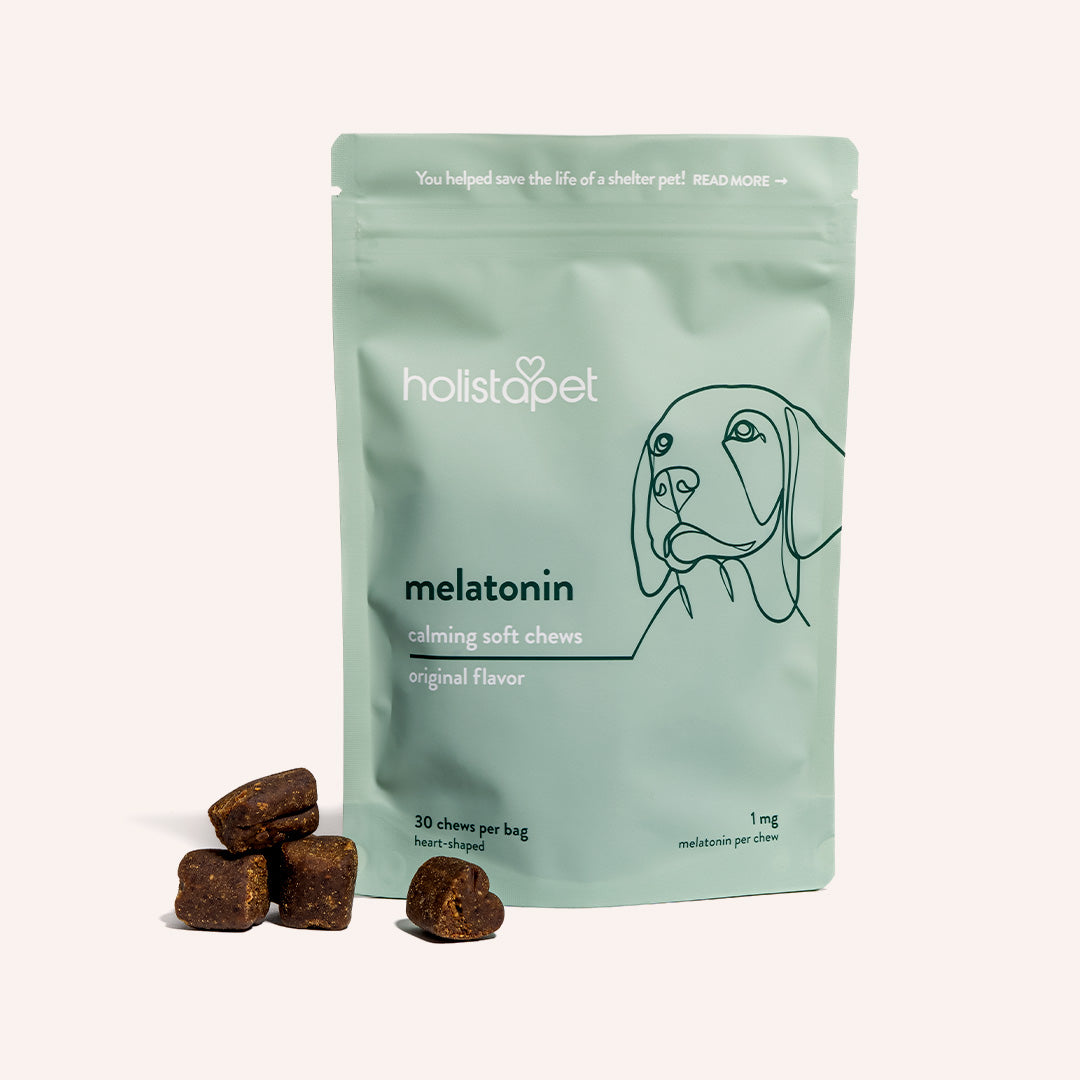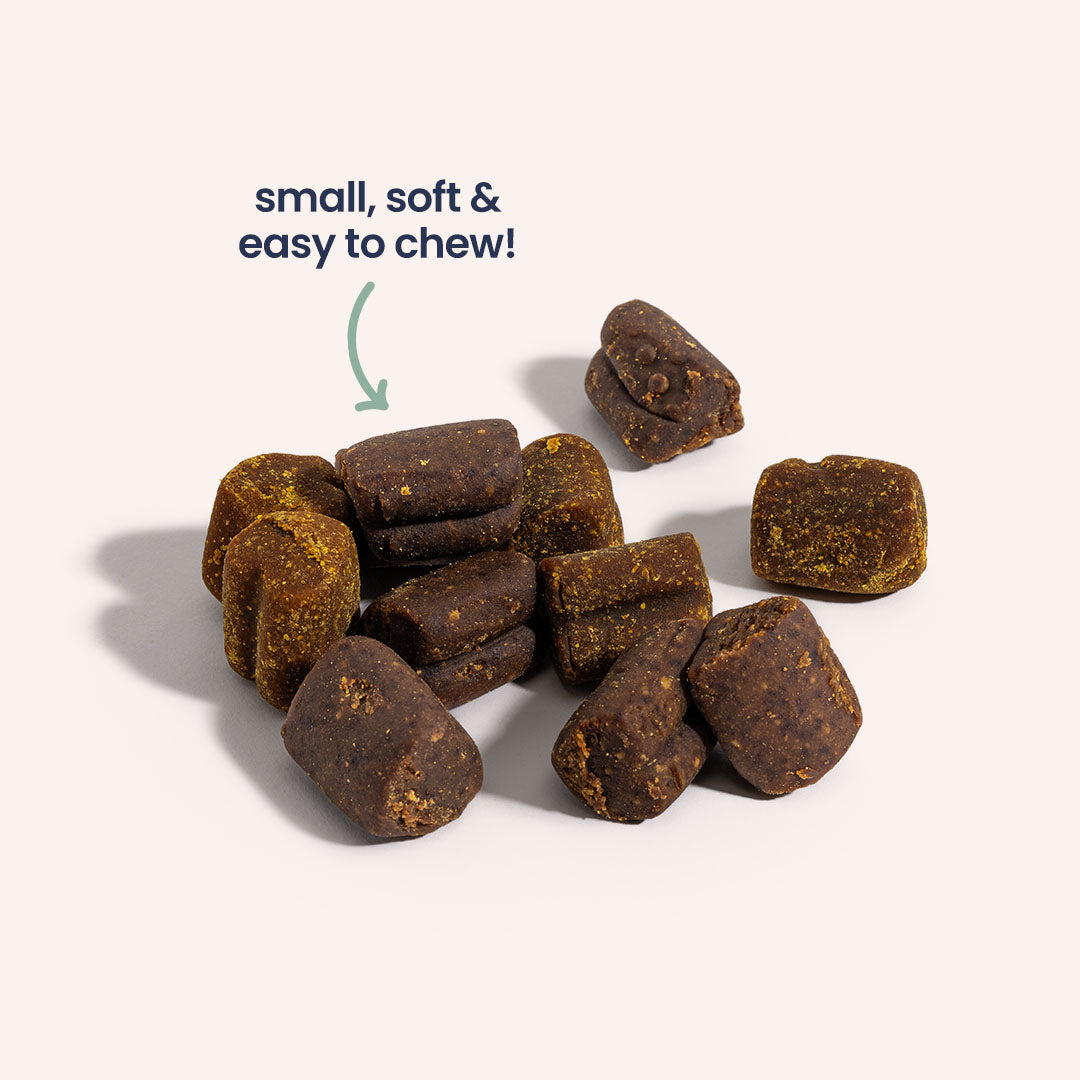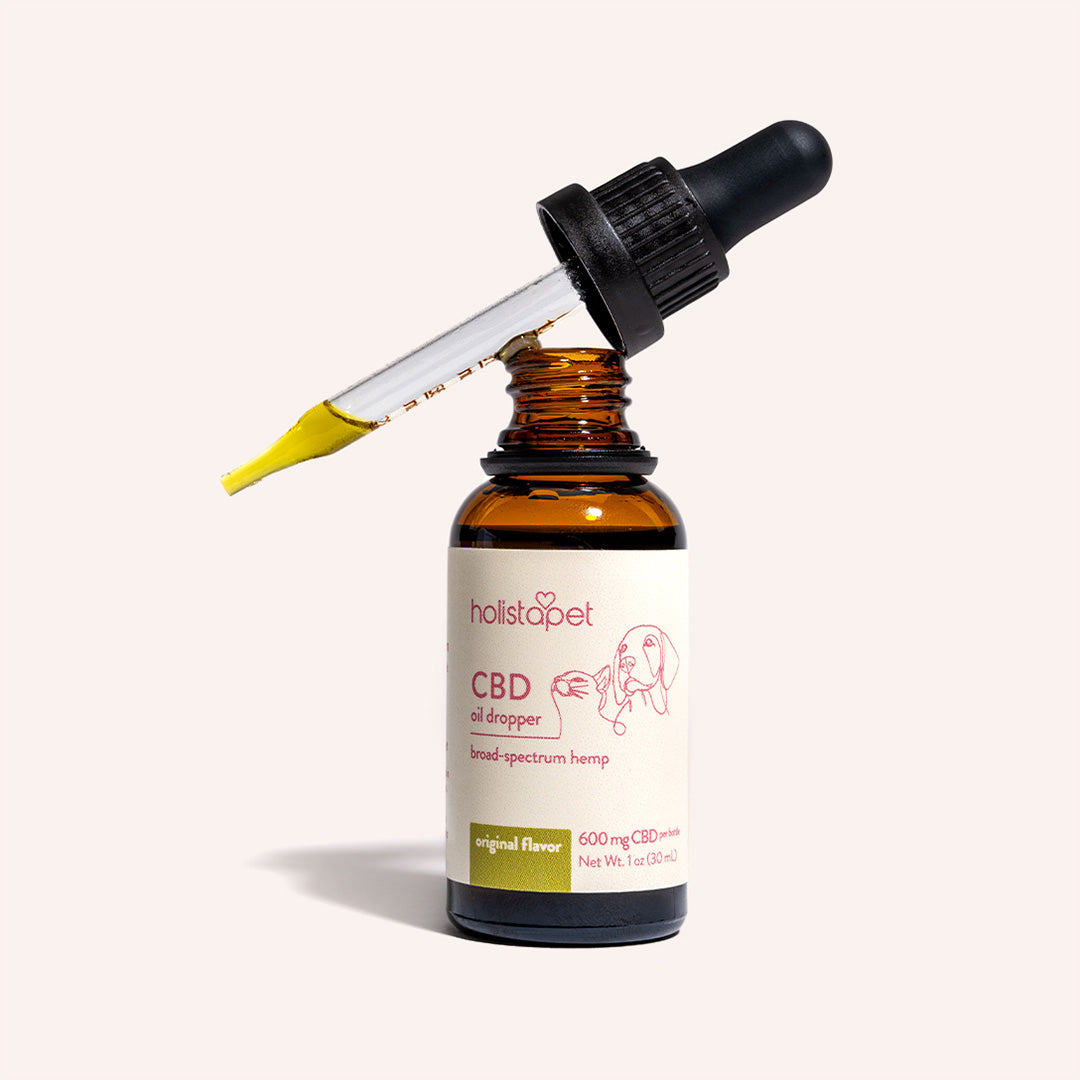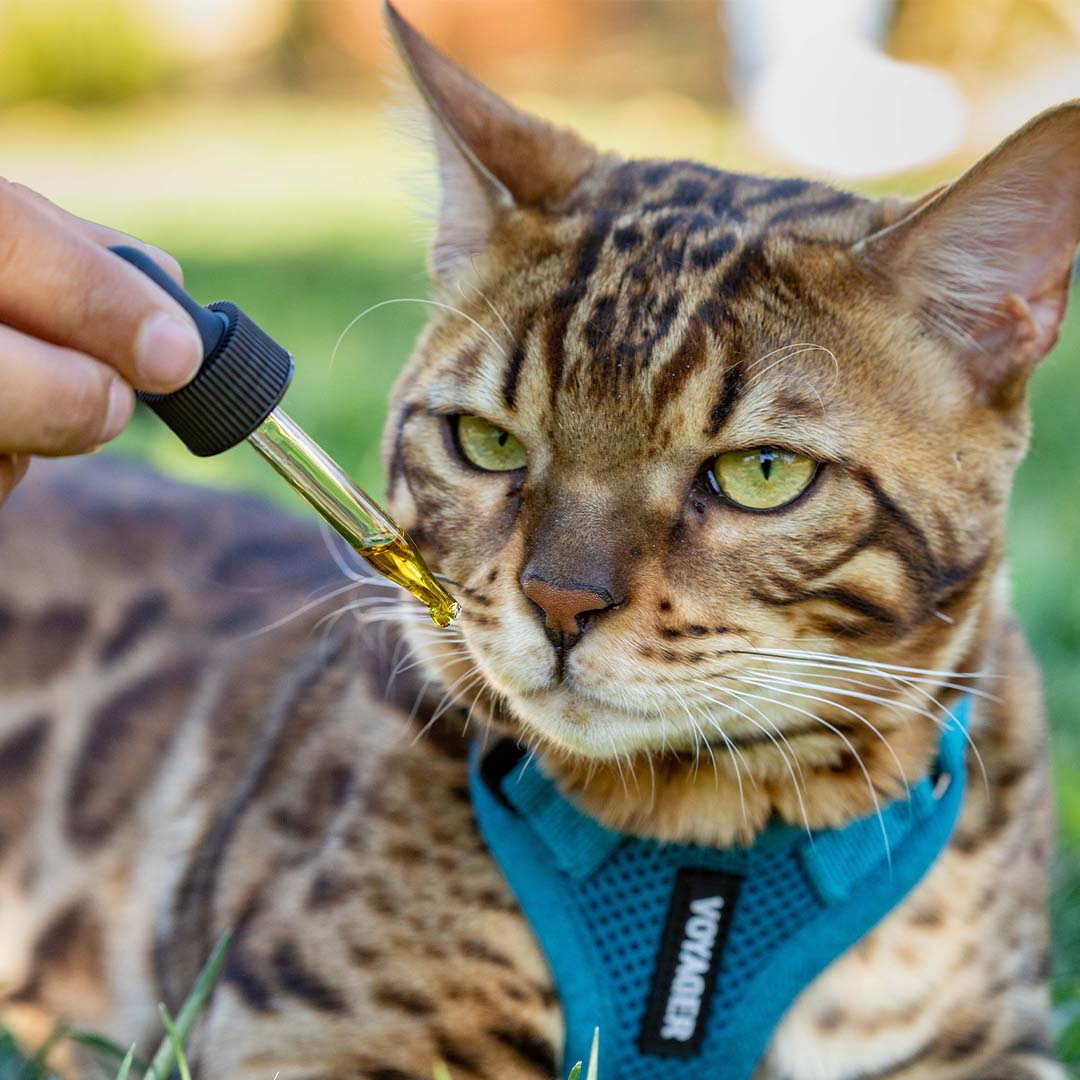Is CBD useful for managing aggressive behaviors in dogs? Cannabidiol, also known as CBD, is extracted from the cannabis Sativa plant and continues to grow in popularity amongst pet owners. Many owners find CBD for dog aggression to be an effective tool in helping behavioral issues in canines. And since quality CBD products do not contain THC (the main chemical that contributes to the “high” effects of marijuana), owners don't have to worry about their pups feeling intoxicated.
"CBD oil-infused dog treats, oil tinctures, or oil capsules canbe administeredto dogs and other pets.This can help treat various conditions related to stress, nervousness, irritability, general discomfort, and more.After a vet consultation, people should feel quite comfortable in giving CBD to most petsto help address behavior problems such as aggression. Let's learn more about utilizingCBDfor aggressive dogs!
What Is Dog Aggression?
Aggression is one of the most common behavioral problems in dogs. Aggressive behaviors such dogs include:
- Harsh barking
- Growling
- Snarling
- Lunging
- Biting
You may notice these behaviors when the dog is saying, “Back off!” for some reason. Other behaviors (such as a stiff body or intense staring) can also indicate the dog is worried and may escalate to more dangerous aggression. Although not all aggression is abnormal, anxiety and fear often play a role in this behavior.
Genetics, past experiences with certain types of people, places, or other dogs (especially before 16 weeks of age in dogs), and the dog’s current environment have all been shown to be factors in aggression. Regardless of the cause, canine aggression can be dangerous to families, visitors, or the public if not addressed. It is important to consult your veterinarian to properly diagnose and treat any underlying health concerns that may be contributing to the aggression, and potentially seek help from a reputable behavioral professional when dealing with canine aggression.
Causes & Types Of Dog Aggression
There are various types of dog aggression, which can be classified according to the target (owner, unfamiliar visitor, child, other pets, etc.) or motivation for aggression (fear, territorial, possessiveness, to name a few). Certain dog breeds, may become aggressive to just one target or in one location, while other dogs may show aggression across multiple contexts. Here are a few of the most common types.
Fear-Related Or Defensive Aggression
This is probably the most common yet under-recognized type of aggression. Many things can create fear or a sense of unease in a dog. Most pups try to avoid or diffuse the situation by using signals like lip-licking or looking away. Unfortunately, any dog can escalate to aggression if he feels threatened enough.
People leaning down and reaching out a hand in a friendly greeting can be frightening to dogs. This is a common trigger for aggression towards an unfamiliar person. Likewise, growls or bites from someone hugging or bothering a resting dog are often a defensive reaction.
Irritable Aggression
Irritable aggression is similar to defensive aggression in that the dog is telling the target to back away because of discomfort. It is important to remember that any form of emotional stress (e.g., visitors, a new baby) can make a pooch feel crankier and lower its threshold for aggression. We can probably all relate to a bad day at work or school leading to more verbal snaps at our dog trainers or family members later that evening.
Territorial Aggression
Dogs naturally tend to alert or even more aggressively drive away intruders from their territory, an area containing valued resources. Territorial aggression is, by definition, directed towards people or dogs that are not part of the group. Many pups showing territorial aggression around the house are also wary of people off-property. Bites to non-family members in the home or yard can often combine fear and territorial behavior.
Possessive Aggression
Dogs can show aggression to warn people or other animals to back away from a specific valued resource like food, a toy, or even a preferred person. Just like territorial aggression, a closer look often reveals attempts by the dog to avoid a confrontation or anxious behaviors prior to the aggression. Food items that are animal-based and can’t be eaten in one bite tend to trigger the worst food-related aggression. Therefore, a real bone usually triggers more growls and bites than a peanut butter stuffed toy, and growls and snaps around the food bowl are more common than fights over one small treat.
Interdog Aggression
Aggression directed towards another non-family dog often has the same motivations of aggression to unfamiliar people or visitors – fear, defense, and territorial behavior. Fights between family dogs tend to be triggered by resource guarding and can be particularly scary and upsetting for the family. Some pets have a few scuffles early in the relationship, but it is a mistake to assume that just because dogs are generally social, all of them will get along after they “work it out" for themselves. Sometimes, you may need to seek external intervention.
Play Aggression
Not all aggression in dogs comes from negative emotions. Just like kids, dogs can often use rough and tumble play as healthy social interactions. They can sound ferocious, but as long as both canines are engaging in the play, it is usually fine. However, some pups — especially those with underlying anxiety and poor social experiences as puppies — often don’t read other dogs’ signals for “that’s enough” very well. In that case, play can escalate into true aggression and serious injury. It can be difficult to teach an adult dog these social skills without professional help.
Predatory Aggression
Like play aggression, true predatory aggression is not based on creating distance due to a threat. A dog in a predatory state is usually quiet, crouching lower to the ground, and maybe raising a paw like a pointer dog in preparation to chase a smaller critter. This could be a bird or squirrel, but unfortunately, a cat and very rarely a small child could be the target. Chasing moving bikes, cars, skateboarders, or runners may have some foundation in predatory behavior, but that doesn’t mean the dog isn’t experiencing some other negative emotion like fear too.
Disease-Associated Aggression
Sometimes, aggressive behavior can signify that something more serious is wrong. Infectious and non-infectious sickness can cause dogs who arenormallynot aggressive to behave moreerratically.
Ailments like this include (but are not limited to):
- Hypoglycemia
- Rabies
- Neurological or thyroid problems
Aggression From Pain
Pain-elicited aggression occurs when a dog who is in pain is handled or bothered. Since canines can't rely on using words as we do, it may snap after being pet to communicate to you that it feels discomfort or irritation. Whether it's due to a more serious ailment or something as small as having an object stuck in their paw, sudden episodes of aggression can be a good indicator that your pup is upset because of chronic pain too.
Hot Tip: Is your furry friend having episodes of aggression? We suggest keeping a journal and thoroughly noting each time your pup acts out. Not only will this help you narrow down the cause of your dog's aggression, but it will also be a great record for your vet if you decide to bring them in for a check-up.
Sexual-Related Aggression
Did you know that aggressive behavior in dogs can sometimes be due to mating behavior? Dogs will often compete with members of the same sex if a female is in heat, and may act out as a result. If your pup is experiencing sexual-related aggression, they may also exhibit other behaviors, like:
- Frequent whining or barking
- Stubbornness
- Excessive grooming
- Mounting
- Territorial peeing
- Other destructive behaviors
Fortunately, you can usually help shelter dogs ease sexual-related aggression with attention. Some of the best ways to help your dog relieve this kind of tension are by taking them for a long walk to help tire them out. You can also try engaging in more playtime with them (solo or with other furry friends!). Spaying or neutering your dog can also help alleviate this kind of aggression.
Redirected Or Frustration Aggression
If you have an anxious dog who is already prone to nervousness, they may exhibit aggression if approached while upset. Sometimes, the best course of action in cases of fear aggression like these is removing the source of fear. For example, if your small dog is intimidated by bigger canines, it may be helpful to avoid walking your pup near them.
If removing the source of dog anxiety or frustration doesn't help calm your dog's nerves, it may be time to look into other methods to help calm them. Behavior modification or other natural alternatives are often helpful solutions.
Reach Out to Your Vet for Help
If your normally gentle pup is suddenly displaying signs of aggression, they may have an ailment you can't see. While many forms of dog aggression can be taken care of at home, sometimes it's best to seek medical advice or care.
Best CBD for Dogs Aggression
There are many different kinds of CBD products that can help with dog aggression.Whether you just adopted a puppy, have an older pooch with sensitivities, or care for a handful of pups with their own peculiarities, there's likely a product or two for you.
Some of HolistaPet's best CBD for aggressive dogs include:
- Oil tincture
- Dog treats
- Soft chews
- Capsules
- CBD-infused shampoo
Each product has unique benefits — let's break them down together to find the CBD product that's best for you and your aggressive dog!
Crunchy Dog Treats
These classic CBD treats are great for any dog (aggressive or not)! Use them as a reward for good behavior or supplement their everyday diet. With three great flavors to choose from, we recommend our Calming Relief Dog Treats in Yummy Green Apple & Peanut Butter Flavor for pooches struggling with aggression.
Soft Chews
These treats are pre-dosed and easy to travel with like their crunchy counterparts. Soft chew dog are especially great for pups who have dental issues or sensitive tummies. They're also easy for all pups to chew and digest.
CBD Oil Tincture
CBD oil tincture is great because you can use it in a handful of ways! CBD oil for dogs with aggression you can add it to your dog's bowl during mealtime or to a treat. If you're comfortable, you can also apply it directly to their mouth to help them experience almost-instant, calming effects. Not only that, but its convenient dropper tool makes dosing easy every time.
Dog Shampoo
Is your pup a big fan of cuddling and pets? Try giving them a soothing massage with CBD Shampoo for Dogs. We recommend using it once a month to help keep your pup's coat well-hydrated and shiny!
CBD Capsules
If you think your furry friend could benefit from taking a chill pill, then CBD capsules may be for you. These capsules are pre-dosed, easy to travel with, and are easy to hide in food and treats. This makes them great for dogs of all shapes and sizes!
Treatment Of Dog Aggression
Treating dog aggression can be complex, but the most important aspect of any aggression treatment plan is safety. Tools to physically block pups from the target of aggression — such as baby gates, crates, basket muzzles, head halters, and leashes — can be critical in decreasing injury. Common sense avoidance of dangerous situations is important as well. For example, a dog that is aggressive to other canines should not be at dog parks or participate in group play with unfamiliar pups.
Other components of a good plan involve reducing the dog’s fear and anxiety. Behavior modification strategies should focus on creating alternative behaviors with dog treats. Instead of rushing the door when a visitor arrives, use positive reinforcement to train your dog to go to its crate when the doorbell rings. Teach your pup to look at you instead of lunging at the end of the leash towards another animal.
It is difficult to learn in a very fearful or anxious state. Enrichment in the form of exercise, dog treat training, food puzzle toys, and scent games contributes to a better sense of wellbeing. However, some furry friends may need additional calming therapies to help reduce reactivity and improve learning. Prescription medications are available, but some pet owners may wish to use natural alternatives or other home remedies for anxious dogs.
Using CBD For Dog Aggression
Cannabidiol has been used as a generally well-tolerated and natural option to help canine nervousness and aggression. At HolistaPet, we lab test all of our products for quality and dosing accuracy. CBD is non-intoxicating, which means your pet won't get "high." Instead, it promotes feelings of calmness and more relaxation.
Just like most natural products, there can be a point where administering more CBD will have no additional effects on your aggressive dog's behavior. We advise that you give your pet small amounts of CBD while monitoring the effects before you increase their dosage!
CBD For Dog Aggression - Why Choose HolistaPet
At HolistaPet, we believe that your dog's wellbeing should come first. This is why we only use organic, gluten-free, non-GMO, and dairy-free ingredients because we want all pups to be able to benefit from holistic, natural care. We also use third-party labs to test our products from beginning to finish, so you know that they're top-tier right from the start.
Check out some of our reviews today to learn more about why HolistaPet is so loved by dog owners everywhere!
Final Thoughts - CBD For Dog Aggression
No one wants to deal with dog aggression. Fortunately, there are many steps that pet owners can take before resorting to medication. By paying close attention to your pal's actions and surroundings, you'll be able to understand your pup's behavior and take more confident steps toward calming your aggressive dog.
Remember that if at-home remedies like behavior modification, treat training, or use of CBD for your dog's weight or aggression don't help, it may be time to reach out to a vet for professional advice and care. Want to learn more about why Spot may be acting out? Check out HolistaPet's Blog to learn more about dog behaviors, breeds, home remedies, and more!








![Probiotics For Dogs [Soft Chews]](http://www.holistapet.com/cdn/shop/files/Probiotic-Infographic-1_472d7a29-e30c-435a-9638-1365d8c3a9f9.jpg?v=1725384841&width=104)















![CBD For Dogs With Aggression: Effects Of CBD On Dogs [2024]](http://www.holistapet.com/cdn/shop/articles/400.jpg?v=1715363818&width=1500)














Leave a comment
This site is protected by hCaptcha and the hCaptcha Privacy Policy and Terms of Service apply.